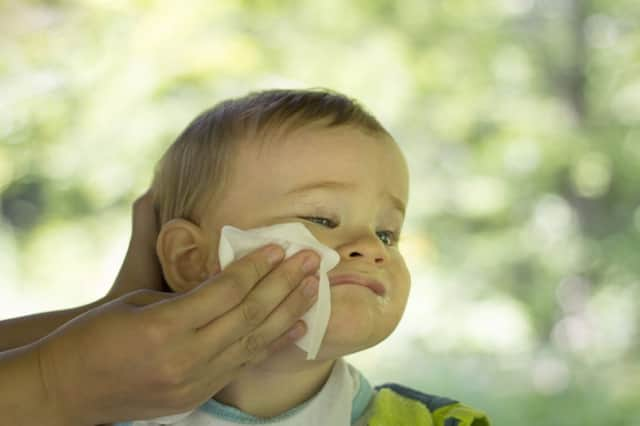UK considers wet wipes ban in bid to cut plastic waste


Westminster has pledged to eliminate all avoidable plastic waste by 2042.
Under the pledge items such as the carrier bags, food packaging and plastic straws that litter the country and pollute the ocean could be outlawed.
Advertisement
Hide AdAdvertisement
Hide AdBut the plan also includes “single use products like wet wipes”, which contain non-biodegradable plastic.
There are myriad types of disposable wipes on the market, used for everything from cleaning your baby during a nappy change, to removing make-up, polishing furniture and washing floors.
Although usually labelled as unflushable, the convenient cloths are responsible for 93 per cent. of all sewer blockages in the UK.
They are a major component of gruesome obstructions known as fatbergs, which form when material flushed down toilets becomes bound together by grease and fat.
Wipes are also one of the most commonly found litter items on beaches in the UK.
Results from the 2017 Great British Beach Clean by the Marine Conservation Society (MCS) revealed a shocking 94 per cent rise in the number of wet wipes found on shorelines across the country. The survey found an average of 30 wet wipes on every 100m of beach.
Usually made of polyester, they pose a major threat to wildlife and people. Birds and animals can eat them, mistaking them for food. Wipes can also soak up toxic chemicals and bacteria as they travel down drains and transport them to beaches.
A spokesman for the UK’s Department for Environment, Food & Rural Affairs (Defra) said: “Through our 25 Year Environment Plan we have a clear commitment to eliminate all avoidable plastic waste.
Advertisement
Hide AdAdvertisement
Hide Ad“There are a number of ways we can reach this ambition, including banning plastic items – as we have done with our microbeads ban – but also by working with industry to find suitable alternatives or encouraging behaviour change.
“Our focus for wet wipes is to work with manufacturers and water companies to develop a product that does not contain plastic and can therefore be safely flushed. We are also continuing to work with industry to make sure labelling on the packaging of these products is clear and people know how to dispose of them.”
Combined action is needed to combat the problem, according to the representative body for the country’s water and sewerage providers.
Rae Stewart , director of corporate affairs for Water UK, said: “Water companies spend billions of pounds every year improving water and sewerage services in this country, but our sewers are just not designed to handle these new wipes which clog up the system. Sewer blockages end up costing the country about £100 million every year so it’s clear something needs to change.”
Conservationists have welcomed the news.
Dr Laura Foster, head of pollution at MCS, said: “This source of microplastic is easy to prevent and we want any product which is being designed to be washed or flushed down the drain to be free from plastics.”
Defra is currently exploring how taxes or charges could help cut the quantity of single-use plastics thrown away.